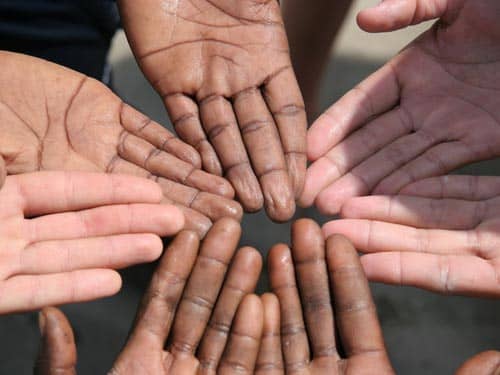Doctors have been shocked by a study that found that prayer seemingly doubles the chances of women having a baby through in vitro fertilization (IVF) treatment. The startling research is published as another report says that doctors need to pay more attention to their patients' spiritual beliefs.
The baby boom is revealed in the latest issue of the Journal of Reproductive Medicine, which says that a group of women who were prayed for during their IVF treatment had a 50 percent pregnancy rate--compared with a 26 percent success rate among those not prayed for.
Although doctors say there may be unknown biological factors behind the results, they believe the findings were significant enough to be published for further discussion. According to The New York Times, the lead author of the report said that the differing rates were "highly significant." Dr. Rogerio A. Lobo, chairman of obstetrics and gynecology at Columbia University, said that while he did not know that prayer was "the definitive answer," there was "definitely an association."
Science Daily said the study involved 199 women undergoing IVF treatment at a hospital in Seoul, Korea, between December 1998 and March 1999. None of the women or their doctors knew about the prayer research. Photos of some of those receiving treatment were given to a group of Christians. Researchers looked at their results several ways to see if there might be variables that could account for the differences, but none of their adjustments altered the results.
Mark Su from Tufts University in Boston looked at 212 studies from the last 20 years and found 75 percent of them reported a positive health benefit from religious commitment, reported "HealthScout News." Cancer, heart disease, and hypertension were among the conditions impacted by religious faith, he found.
But while 94 percent of Americans believe in God or some form of higher power, only 64 percent of doctors believe in God. Reuters said that Su observed: "Patients are more likely to desire spiritual issues to be discussed in their health care than are physicians to actually address them."
Su, who was due to present today his findings to the annual gathering of the American Academy of Family Physicians, said he asked his patients about their religious backgrounds. "It leads to meaningful discussions, and it creates a bond."
He told Reuters that he did not know whether better health was the result of religion itself or the behaviors it encouraged. "Some researchers think that people who are more religious are taught not to drink or smoke, but others believe the health benefits are due to feelings of peace and a sense of purpose, confidence and identity that religion can promote," he said.
Su said that the findings did not justify "proselytizing." "If a patient isn't interested in discussing it, then I don't push them about it. But I think it's reasonable for patients to mention that they have certain religious or spiritual beliefs."

